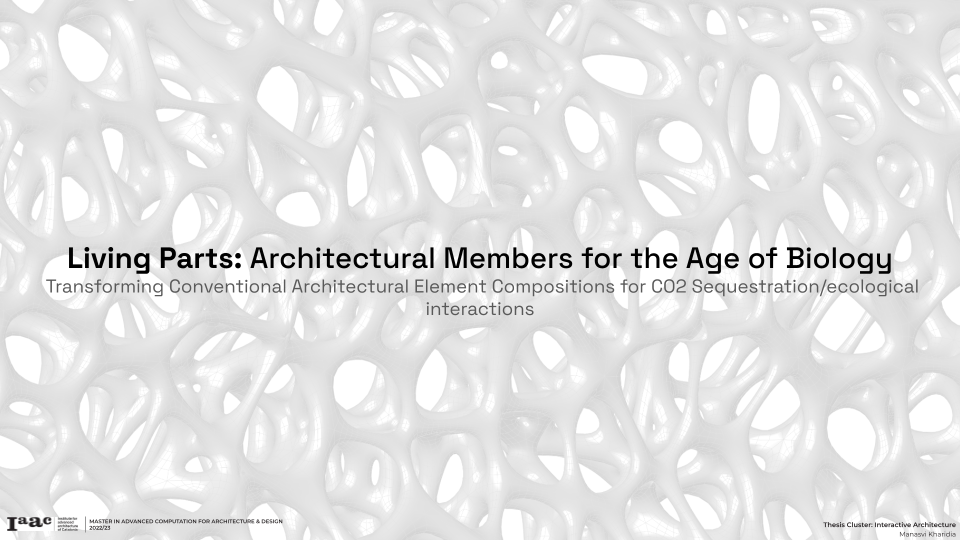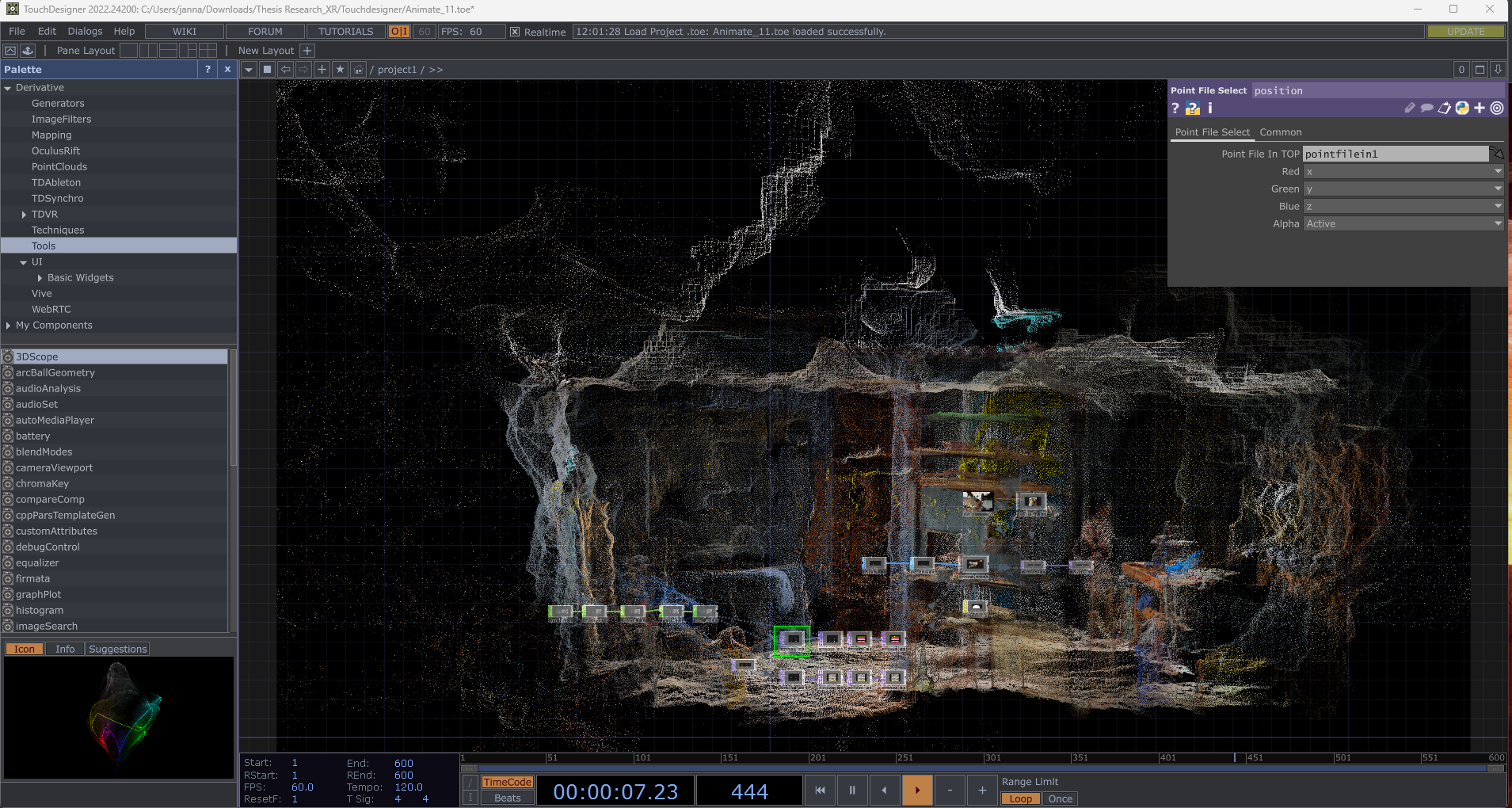Living Parts: Architectural Members for the Age of Biology
Transforming Conventional Architectural Element Compositions for CO2 Sequestration/ecological interactions Living Parts is a project that tries to bridge the gap between anthropocentric and nature-centric design. As we already know that that the building industry, in the past couple of centuries has caused major harm to the environment with things like producing toxic waste, waste energy, … Read more




